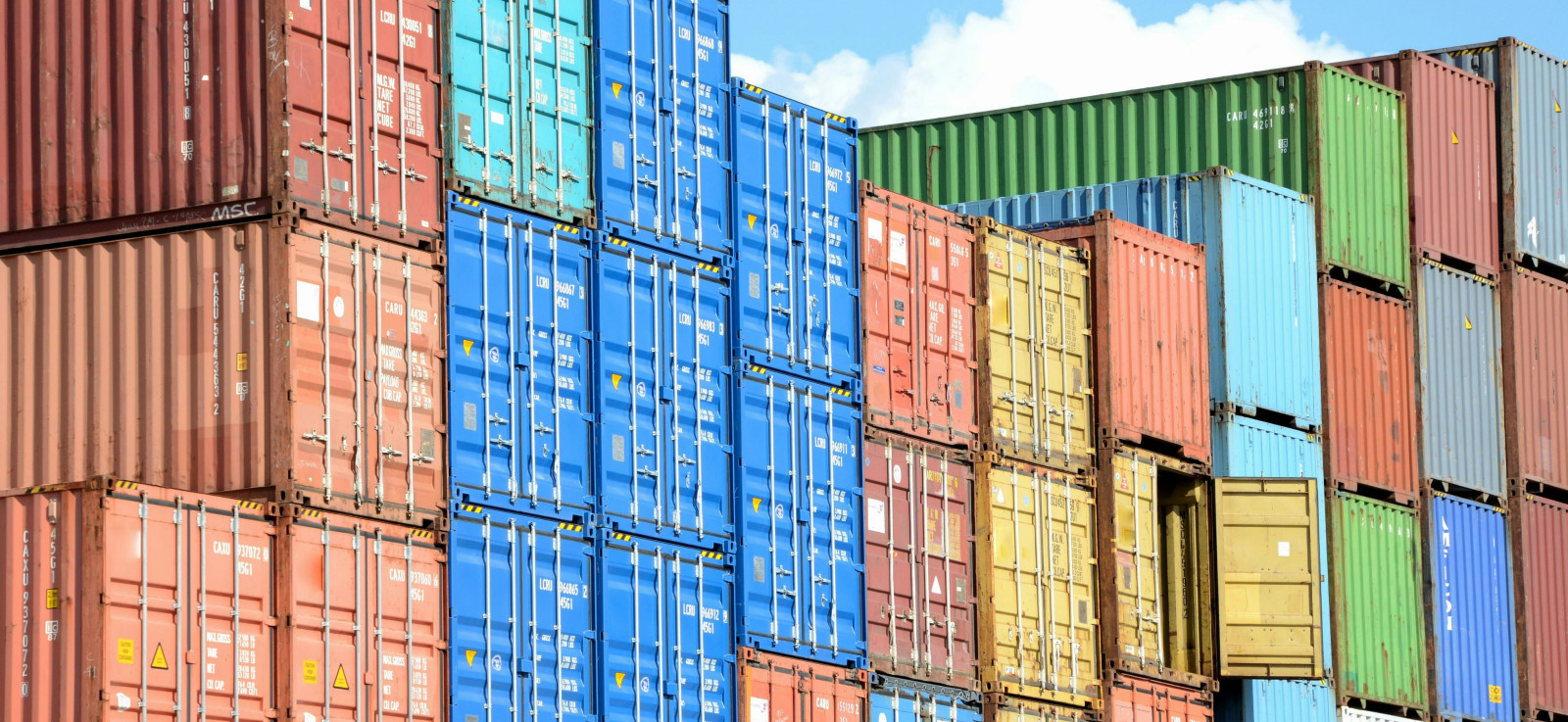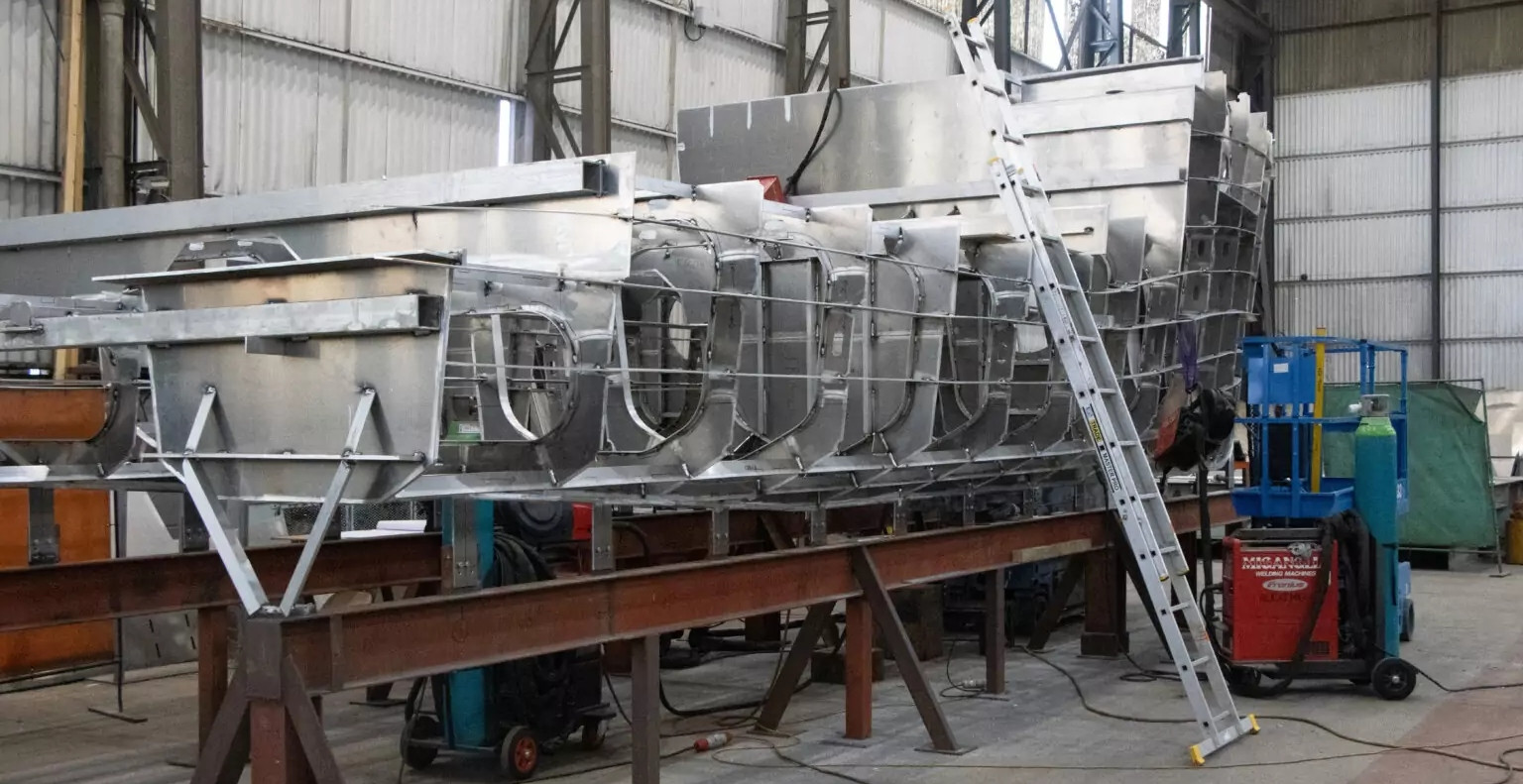Export Finance: Unlocking Global Growth for UK Manufacturers

UK Export Finance delivered a record £14.5bn in support last year, helping hundreds of UK companies export and grow.
At Made in Group’s latest Monthly Meet-Up, Mark Lynam, Export Finance Manager at UK Export Finance (UKEF), explained how the government’s export credit agency is giving manufacturers the tools and confidence to compete globally.
Levelling the Playing Field
The right finance and insurance can be the difference between winning an order and losing it, Mark said. That’s where UKEF comes in.
Established to ensure no viable UK export fails due to a lack of finance or insurance, the agency works alongside the Department for Business and Trade and operates at no net cost to the taxpayer.
More than 80% of the businesses UEKF supports are SMEs, meaning the team understands the practical challenges small businesses face when securing funding for overseas orders.
How UKEF support works
To access certain export finance facilities, banks may require collateral, which can tie up cashflow. Limited risk appetite from banks can also block access to the types of financing manufacturers need. UKEF removes those barriers by giving lenders the confidence to extend working capital, bonding and letter of credit facilities.
Insurance cover provides valuable protection against the risk of not getting paid. For businesses unable to secure cover – due to high market risk or the value of a contract being too low – an Export Insurance Policy from UKEF can cover up to 95% of a contract’s value, protecting against buyer insolvency, non-payment, political disruption or civil unrest.
Eligibility is deliberately broad, Mark noted. Businesses qualify if at least 20% of turnover in any of the last three years has come from exports., or at least 5% in each of the last three years.
Record Year of Export Financing
In 2024-25, UKEF delivered its highest-ever level of support:
- £14.5bn of export financing
- 660+ UK companies supported
- 70,000 jobs safeguarded
- £5.4bn added to UK GDP.
Businesses that have benefitted include:
Alicat Workboats, a Norfolk-based builder of bespoke steel and aluminium vessels, particularly crew transfer vessels for the offshore wind sector.
Despite a strong reputation in domestic markets, the company faced a hurdle when presented with an opportunity to export two offshore wind workboats to Turkey. Without appropriate financial backing, its risked losing the contract to overseas competition.
UKEF facilitated a £2m package that enabled Alicat Workboats to expand its export capabilities, safeguarded 35 jobs, created new apprenticeships, and opened the door to future international opportunities.

*Image courtesy of Alicat Workboats
Expert Technologies Group, a Coventry-based supplier of robotic assembly systems to OEM manufacturers, accessed €1.4m in working capital backed by UKEF to deliver a Spanish contract for two automated auxiliary harness assembly lines for electric vehicles.
Helping Seize Clean Growth Opportunities
Green trade is forecast to be worth £1.8 trillion globally by 2030, representing up to £170bn of export sales for the UK. Unsurprisingly, this is a space UKEF is keen to promote, having ended direct support for new oil and gas projects. (Although the agency still supports companies contributing to energy efficiency, safety improvements and the transition to cleaner energy.)
In 2024–25 alone, UKEF provided £2.3bn in clean growth financing, including the expansion of AESC’s gigafactory in Teesside, which will produce batteries for 100,000 EVs each year, and the transformation of Shotton Mill in North Wales into the UK’s largest recycled paper facility.
Key Takeaways for SME Manufacturers
Check eligibility early – Even a modest track record of exports may qualify a business for UKEF-backed finance.
Use insurance to protect margins – Export credit insurance reduces exposure to overseas buyer risk.
Pursue larger contracts with confidence – UKEF guarantees provide the headroom needed to take on opportunities that might otherwise exceed working capital limits.
Leverage government backing – Government backing can strengthen negotiations with banks, suppliers and customers.
Position for clean growth – UKEF is helping put UK exporters and suppliers at the heart of the global low-carbon transition.
Lessons From the Breakout Discussion
Following Mark’s presentation, Made Members joined a breakout discussion to explore how SMEs can make the most of UKEF’s support.
Start the conversation early
Many SMEs wait until an overseas inquiry arrives before seeking finance. Mark stressed that early engagement – even at the stage of assessing a potential opportunity – allows businesses to plan strategically, ensure they have the right resources, and access finance in time to deliver.
Alternative lenders can be more receptive
With the main high street banks lending around 40% of SME finance in the UK, alternative lenders are playing an increasingly important role. UKEF can connect businesses with these lenders or experienced trade finance brokers, offering routes to funding that might otherwise be missed.
Domestic growth support
UKEF’s General Export Facility can fund investments that support domestic production, such as the purchase of new machinery, hiring additional staff, or expanding a factory. Export finance is therefore not only about overseas sales, it’s about enabling growth and operational resilience at home.
Eligibility is broader than many realise
A surprising number of SMEs assume ‘export finance’ only applies if they are shipping abroad. In fact, businesses that meet basic export turnover criteria – even if they are supplying a UK-based exporter – can potentially access UKEF-backed working capital.
Examples discussed included a Cotswolds hotel that supported a coach company exporting holidays to international tourists, and a Coventry manufacturer investing in new mezzanine floors to expand production.
Preparation and clarity matter
Presenting a clear, structured proposal, rather than simply asking “how much can I borrow?” can make all the difference – reducing friction and increasing the likelihood of funding.
Focus on growth, not just compliance
Export finance should be seen as a growth enabler. Whether it’s fulfilling a single overseas order or investing in production capacity for long-term expansion, UKEF’s support is designed to remove financial constraints and give SMEs the confidence to pursue strategic opportunities.
Join our Next Industry Meetup!
The opportunity to openly discuss challenges, opportunities and solutions is what makes the Made in Group’s Industry Meetups so invaluable.
During these captivating virtual events, industry experts, thought leaders, and professionals gather to share knowledge, insights and best practices.
The goal is to foster collaboration, inspire innovation, and drive growth within the manufacturing community.
Each meetup, we feature three engaging talks from Made Members, focusing on best practices around key themes that shape the future of manufacturing, including Global Trade, People & Skills, Future Factories, and Sustainability.
Presentations are followed by interactive Discussion Groups. These virtual roundtables enable Members to exchange ideas and gain further insights on their chosen topic.
We look forward to seeing you at the next one:
*Header image courtesy of Paul Teysen on Unsplash